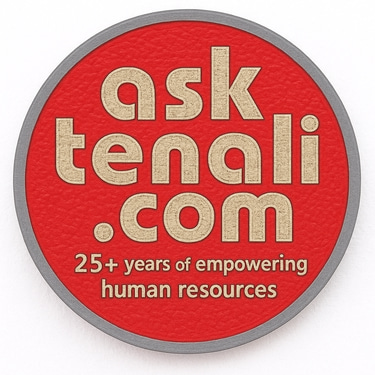The Art of Slow Living: Finding Peace in a Fast-Paced World
The Art of Slow Living and Transform Your Life with Mindful Living Discover the principles of slow living and learn how to cultivate a more mindful and intentional lifestyle. Embrace peace, balance, and well-being today!
LIFE STYLE
Asktenali
3/4/20253 min read
#SlowLiving #MindfulLiving #IntentionalLiving #PeaceOfMind #SimpleLiving #WorkLifeBalance #MentalWellness #PersonalGrowth #DigitalDetox #LifeOptimization
Why Slow Living Matters in Today’s World
In an era of relentless hustle, where success is often measured by how busy one appears, the concept of slow living has emerged as a powerful counter-movement. According to a recent study, over 70% of professionals experience chronic stress due to a fast-paced lifestyle. But what if there was a better way? Slow living is not about doing everything at a snail’s pace; it's about prioritizing what truly matters.
This guide will walk you through the philosophy of slow living, its benefits, and practical ways to implement it in your daily life. Whether you're looking for peace of mind, better mental health, or a more balanced lifestyle, this is your roadmap to intentional living.
What Is Slow Living? Understanding the Philosophy
Slow living is a conscious decision to escape the rush and focus on mindfulness and intentionality. It emphasizes quality over quantity and promotes a balanced, fulfilling lifestyle.
Core Principles of Slow Living:
Intentionality – Making deliberate choices rather than reacting to life’s demands.
Mindfulness – Being present in the moment, free from distractions.
Simplicity – Reducing unnecessary clutter, commitments, and distractions.
Sustainability – Living in a way that supports long-term well-being.
Work-Life Balance – Prioritizing time for rest, relationships, and personal growth.
Benefits of Slow Living: Why You Should Embrace It
Mental and Emotional Well-Being
Reduces stress, anxiety, and burnout.
Enhances mindfulness and mental clarity.
Fosters emotional resilience and happiness.
Improved Physical Health
Encourages healthier eating habits and mindful eating.
Lowers blood pressure and reduces the risk of chronic illnesses.
Supports better sleep and relaxation.
Financial Freedom & Smart Money Choices
Reduces impulsive spending by promoting intentional purchases.
Encourages a minimalist lifestyle, leading to better financial management.
Aligns with high-value personal finance and budgeting strategies.
Stronger Relationships
Encourages deeper, more meaningful connections with loved ones.
Creates space for quality time without digital distractions.
How to Implement Slow Living in Everyday Life
Slow Down Your Mornings
Start your day with mindfulness rather than rushing. Consider:
Morning meditation or deep breathing exercises.
A tech-free morning routine.
A slow-brewed coffee or tea ritual.
Simplify Your Schedule
Evaluate your commitments and prioritize what truly matters. Ask yourself:
Does this align with my values?
Is this necessary or can I say no?
Does this bring me joy or stress?
Mindful Work and Productivity Hacks
Use productivity software like Notion or Trello to streamline work.
Implement the Pomodoro Technique for focused work sessions.
Avoid multitasking; focus on one task at a time.
Embrace Minimalism in Finances and Lifestyle
Follow the 50/30/20 budgeting rule for mindful spending.
Invest in quality, not quantity—fewer but better possessions.
Reduce digital clutter by unsubscribing from unnecessary notifications and emails.
Prioritize Rest and Self-Care
Schedule downtime without guilt.
Engage in activities that recharge you—reading, yoga, or creative hobbies.
Set clear work-life boundaries to prevent burnout.
How Slow Living Impacts Your Finances
Slow living naturally aligns with smart financial habits. By cutting unnecessary expenses, making intentional investments, and prioritizing experiences over material possessions, you can achieve long-term financial stability and freedom.
FAQs on Slow Living
Q1. Is slow living realistic in a modern, fast-paced world?
Absolutely! Slow living is about mindful prioritization rather than abandoning responsibilities. Start with small steps—simplify your schedule, set boundaries, and embrace mindful habits.
Q2. Can slow living improve financial security?
Yes! By focusing on intentional spending, financial minimalism, and smart investing, you can build long-term wealth while reducing financial stress.
Q3. How does slow living benefit mental health?
It reduces stress, fosters mindfulness, and promotes emotional resilience, leading to overall well-being.
Final Thoughts: The Path to a More Fulfilling Life
Slow living is not about doing less—it’s about doing what truly matters. By embracing mindfulness, simplifying your commitments, and prioritizing well-being, you can create a life of purpose, peace, and financial freedom.
Ready to embrace the slow living movement? Start today by making one small change and share your journey in the comments!
Share this article with someone who needs to slow down and embrace a more intentional life!
Disclaimer: The information provided in this article is for educational and informational purposes only. It is not intended as financial, legal, medical, or professional advice. Readers are encouraged to consult qualified experts before making decisions based on the content. While we strive for accuracy, AskTenali.com does not guarantee the completeness or reliability of the information. External links may lead to third-party websites, for which we are not responsible. By using this site, you agree to our terms and conditions.
